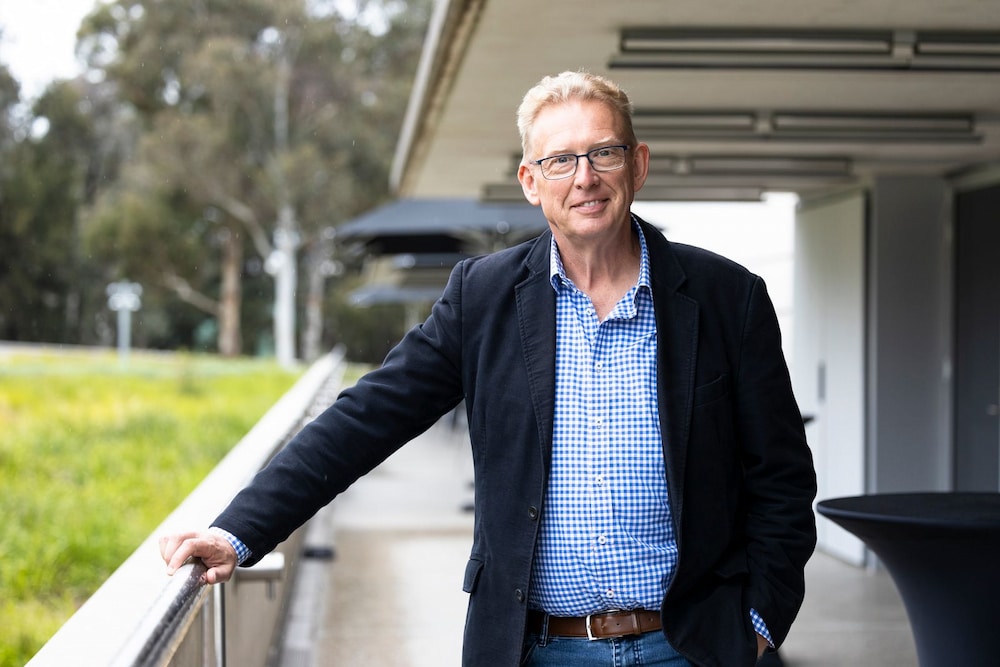Mark Parton MLA, Canberra Liberals member for Brindabella, shares his thoughts about his Western Australian Aboriginal heritage on Reconciliation Day.
I used to think that I had a reasonable understanding of the concept of Aboriginal reconciliation and the national Sorry Day. I’ve recently discovered that I didn’t have a handle on it all. My new perspective has come as a result of a journey of self-discovery.
For more than 20 years, I’ve been aware of my Aboriginal heritage, but I’d just never attempted to find out more, I think partly because I feel like a bit of an imposter in the space. In the last nine months, I’ve been encouraged by some of my relatives and some Aboriginal friends to examine it more closely.
What you need to understand is that my father was ashamed of his Aboriginality. It was never discussed, and that led to an information void for me.
So, armed with my grandmother’s birth and marriage certificates, I wrote away to Aboriginal History WA to find out more about where I came from … and wow! They didn’t let me down. Late in January, they sent me a collection of documents in a wonderfully presented folder titled “My Family History”.
It shows that my father was the son of Adeline Ninyette, who was the daughter of Elsie Ninyette.
Elsie’s parents were Jack Ninyette and Rose Bennell.
And back it goes to the Winmars, the Cables, and the Kicketts.
The folder contains pretty much every known official document pertaining to my Aboriginal ancestors, and it makes for fascinating reading.
As soon as I began reading about the injustices done to my ancestors, so many things changed around my perception of reconciliation and apology. My people are referred to with disdain in these official documents. There are some newspaper reports about court cases involving my great-great-grandfather in which it’s abundantly clear that the outcome was pre-determined.
There’s a series of letters between bureaucrats at the Department of Native Affairs regarding a warrant for the removal of Kandi Bennell from Pingelly to the now infamous Moore River Settlement. Relatives intervened and stopped her from being taken there, which by all accounts was a good thing.
The stark racism of the time pervades these documents. One of them is personally signed by the infamous A.O. Neville, the Chief Protector of Aborigines, who was not portrayed in a good light in the movie Rabbit-Proof Fence. This is from 1933.
He starts the note by saying: “The Ninyette family have lived for about two years in a cottage in Kipling Street, Narrogin. The whole family appear to be well dressed and superior for half castes, but I gathered from what I saw that the condition of the house was what was only to be expected in the case of such people.”
The last line echoed in my head for days after I read it. All of a sudden, this was personal.
I visited Western Australia in March. I was moved by my visit to the Bilya Koort Boodja, the Noongar Cultural Centre in Northam. Maybe I’m naïve, but I’ll admit, I just didn’t know how bad things were for my ancestors.
I didn’t know that they forcibly removed all Aboriginal people from Northam just prior to 1940, and they were all taken to the Moore River Settlement.
I didn’t know that for the next 15 years, it was illegal for Aboriginal people to set foot in the town of Northam or indeed metropolitan Perth.
I didn’t know.
I was heartbroken to read the horrible stories of Sister Kate’s Mission where my grandmother reportedly lived for a period of time, and I was very much emotionally affected by the experience.
There are potentially millions of non-Aboriginal Australians who dismiss the concept of reconciliation and even Aboriginal acknowledgement because “I wasn’t there. I didn’t personally do anything wrong, and so it’s got nothing to do with me.”
I think they’ve missed the point.
As a nation, we can and will be so much stronger when we can all honestly acknowledge the wrongs of the past, and move to a better future.



